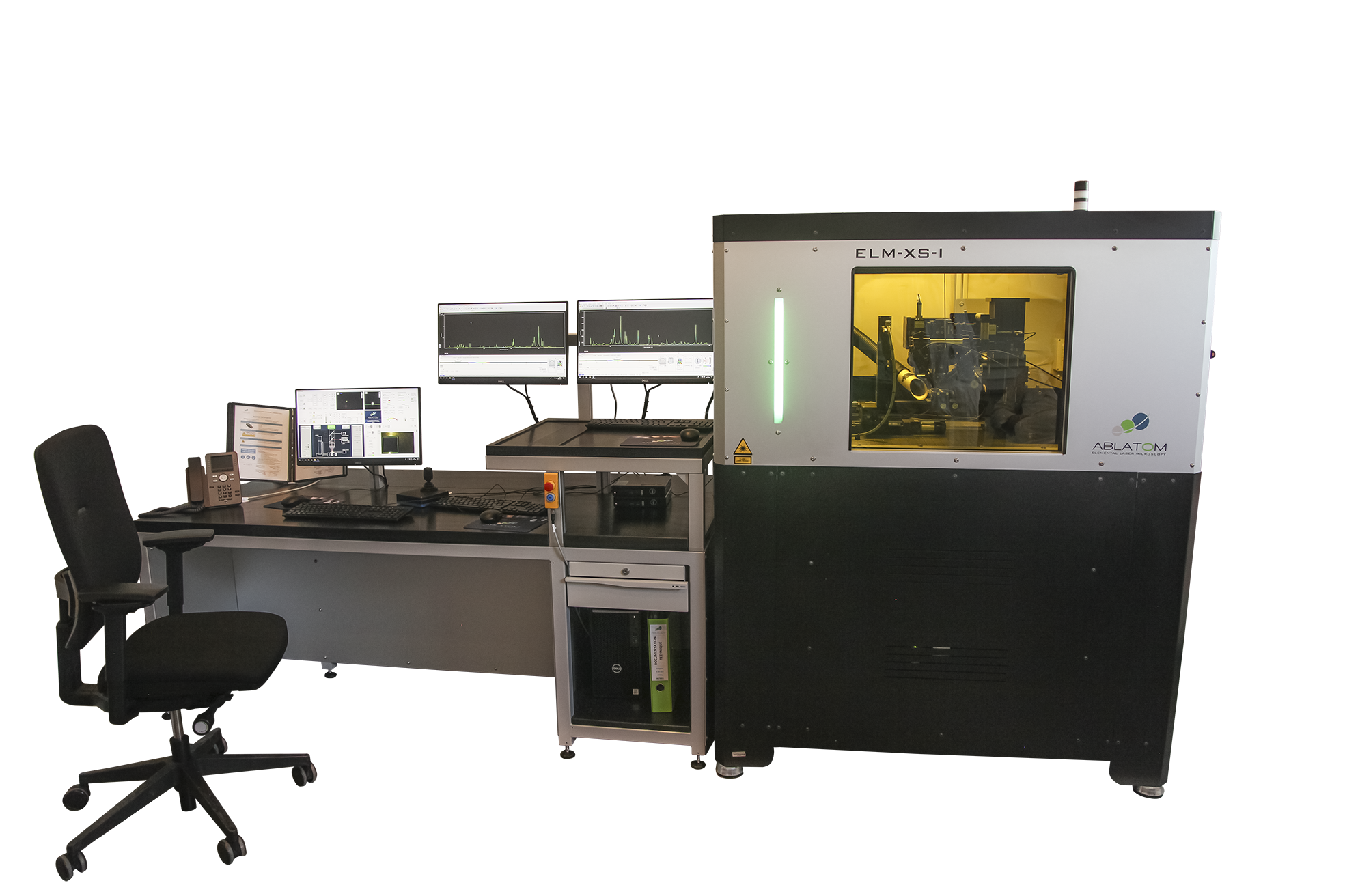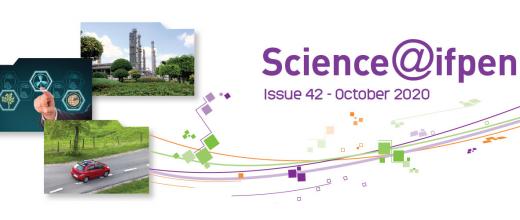09.02.2022
3 minutes of reading
Lina Jolivet was the winner of the 2021 Yves Chauvin thesis prize for her work on the contribution of laser-induced breakdown spectroscopy (LIBS) to the characterization of industrial materials with a view to improving processes. This ongoing research is being carried out as part of a joint project with ABLATOM, the objective being to improve the equipment used for the purposes of innovation projects associated with new energy technologies (NETs).
On 16 December 2021, the annual Yves Chauvin thesis prize, given in recognition of research excellence and originality to a PhD student at IFPEN, was awarded to Lina Jolivet by IFPEN’s Scientific Committee. This award recognizes the innovative research conducted on the theme of « Contribution of laser-induced plasma spectroscopy for the modeling of refining processes ». The award winner conducted her research within IFPEN’s Physics and Analysis Division under the supervision of Loïc Sorbier (IFPEN). The thesis, also jointly supervised by Tiago Sozinho (Axens) and Vincent Motto-Ros (Institute for Light and Matter, Claude Bernard Lyon 1 University), was directed by Charles-Philippe Lienemann (IFPEN).
Research that sheds light on catalyst function
This thesis, conducted within the framework of IFPEN’s Characterization of materials and fluids scientific challenge, demonstrated the potential of laser-induced breakdown spectroscopy (LIBS) for innovative characterization of materials for catalysts. This characterization enables a more precise and accurate understanding and modeling of transport phenomena within catalysts employed in industrial processes.
An innovative technology supporting industry and NETs
Lina Jolivet is currently continuing her research at IFPEN in collaboration with ABLATOM, a start-up company launched by the Institut Lumière Matière (Institute of Light and Matter at CNRS-Université Lyon 1) that markets materials and services in the field of LIBS, with a view to developing analytical methods in LIBS applied to new energy technologies (NETs). IFPEN has access to the very latest LIBS imaging prototype, the ELM-XS-I, developed by ABLATOM, which makes it possible to identify the majority of elements in the periodic table (chlorine, lithium, boron, carbon, etc.) within samples, with a very high degree of sensitivity (~ ppm) and resolution (~ 10 µm).

A broad spectrum of applications for NET research conducted at IFPEN
Many of IFPEN’s NET-related research activities will be able to benefit from this new analysis technique: applications could include corrosion characterization, lithium assay in Li-ion batteries, bio-based chemistry processes, plastics recycling and environmental protection. LIBS can thus be used to characterize different types of steels and metal alloys or produce images of their degradation as a result of corrosion. The first experiments are already being conducted in this field.
In addition, in the field of lithium-ion batteries, LIBS makes it possible to measure specific elements such as halogens and to study phenomena such as aging, by accurately characterizing lithium diffusion in a cell.
In the field of bio-based chemistry, LIBS is used to better characterize the elements present in specific catalysts.
In terms of plastics recycling, the aim is either to detect minuscule traces of undesirable chemical elements, residues from industrial processes or adsorbed from the air, or to differentiate polyolefins or other types of polymers.
Finally, in the field of the environment, LIBS can be used to study soils and their contamination by micro-plastics, as well as clay swelling phenomena, by measuring cations and water (via hydrogen) trapped within them.
For these four fields of application (batteries, bio-based products, plastics recycling and ground pollution) research is under way to evaluate the technical feasibility of the measurements required in terms of the target objectives.
Did you know ?
LIBS consists in focusing a high-energy laser pulse onto the surface of a sample to form a plasma, with the light emitted then being analyzed by optical spectroscopy. It is possible to move the laser across the sample surface with a minimum distance of 10 µm in order to identify the 2D spatial distribution of elements of interest and obtain images, which may vary over time and thus demonstrate dynamic phenomena.
Irrespective of the field of application considered, the methodology applied comprises the following steps:
• preparation of the materials to be characterized as a function of criteria to be met, such flatness;
• setting up of a protocol for measurement, parameter optimization;
• signal and spectra processing, as a function of the application;
• formatting of the desired content: imaging, line profiling, depth profiling.
Others shortlisted for the 2021 Yves Chauvin prize…
Discover the topics covered by the other five candidates selected by their division for the 2021 edition:
- Elsy El Hayek, for her phD thesis « New acid zeolites obtained from silicogermanates ». This thesis was awarded the Denise Barthomeuf 2022 Prize of the Groupe Français des Zéolithes (GFZ - French Group of Zeolites).
- Julie Guillemant, for her phD thesis « Chemometric exploitation of molecular analysis data (FT-ICR/MS) of gas oils (GO) and vacuum gas oils (VGO) for the research for reactivity descriptors ». This research, conducted with the assistance of Orléans University, won the 2021 prize awarded by the French Mass Spectroscopy Society (SFSM). Find out more about her research.
- Paul Hazemann, for her phD thesis « Selectivity loss in Fischer-Tropsch synthesis: high-throughput investigation ».
- Carole Reymond, for her phD thesis « Mass spectrometry coupled with liquid-phase chromatography: towards a more detailed description of complex oxygenated and hydrocarbon matrices ». Carole Reymond was awarded the prize for the best flash communication at the 2019 Congrès francophone sur les Sciences séparatives et les Couplages (French-speaking Conference on Separation Science and Couplings). Find out more about her research.
- Olivier Said-Aizpuru, for her phD thesis « Identification of active phase catalytic descriptors in n-heptane reforming ». Olivier Said-Aizpuru was awarded the prize for the best PhD student presentation at the 2019 FCCat French Conference on Catalysis.







